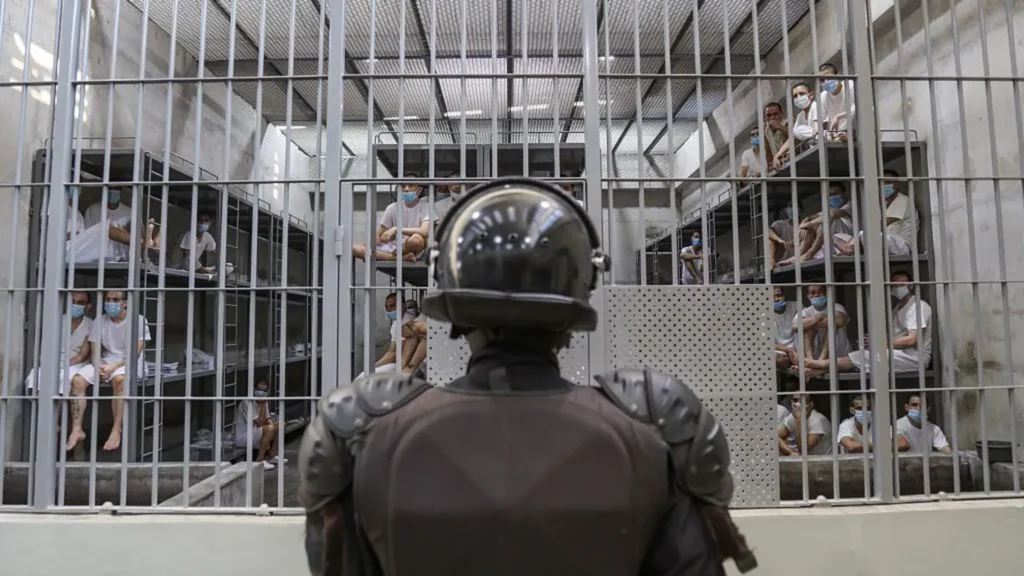In a major legal setback for President Donald Trump’s immigration agenda, the US Supreme Court issued an order halting the deportation of a group of Venezuelan detainees who were being held in Texas under an obscure and rarely used 18th-century wartime law.

The decision, issued on Saturday, comes amid mounting legal challenges to the administration’s controversial use of the 1798 Alien Enemies Act, a statute that allows the president to detain and deport individuals from countries deemed hostile, without affording them the usual legal rights or hearings. The law has only been invoked three times in US history, most recently during World War II, when it was used to justify the internment of Japanese Americans.
The American Civil Liberties Union (ACLU) filed an urgent lawsuit on behalf of a group of alleged Venezuelan gang members, who were arrested and held at a detention center in North Texas. According to court documents, the detainees were not given an opportunity to contest their deportation orders in court. Notices informing them of their imminent removal were issued in English, even though some of the detainees only speak Spanish.
The ACLU argued that the government’s actions violate fundamental due process rights guaranteed under the US Constitution.
“Without this Court’s intervention, dozens or hundreds of proposed class members may be removed to a possible life sentence in El Salvador with no real opportunity to contest their designation or removal,” the ACLU lawsuit warned.
Since returning to office in January, President Donald Trump has resurrected hardline immigration policies, with a new focus on Venezuelan nationals. The Trump administration claimed that the Tren de Aragua, a Venezuelan gang, was responsible for “perpetrating, attempting, and threatening an invasion or predatory incursion” into US territory.
As of April 8, 261 Venezuelans had already been deported to El Salvador, with 137 of those deportations executed under the Alien Enemies Act, according to a senior administration official cited by CBS News.
The administration controversially transferred many of these individuals to CECOT, El Salvador’s massive Terrorism Confinement Centre, known for its harsh conditions and international human rights concerns. This prison complex, touted by Salvadoran President Nayib Bukele as a zero-tolerance facility for gang members, has raised serious alarm among human rights watchdogs.
The Supreme Court’s decision on Saturday does not fully block the use of the Alien Enemies Act but requires the government to give detainees a chance to challenge their deportation. The ruling temporarily halts deportations of Venezuelans held under the act until legal questions surrounding due process and language access are resolved.
Justices Clarence Thomas and Samuel Alito dissented, maintaining that the administration’s actions were lawful under the broad powers granted by the Alien Enemies Act during times of national emergency.
The initial ruling on April 8 had permitted the administration to proceed with deportations, but Saturday’s emergency order reversed that decision in light of fresh evidence suggesting serious procedural flaws.
The controversy has deepened following the case of Kilmar Ábrego García, a Salvadoran national who was mistakenly deported under the Alien Enemies Act. Though labeled by authorities as a member of the notorious MS-13 gang, his lawyer and family insist he has never been involved in criminal activity. In fact, Ábrego García has never been convicted of a crime in the United States or elsewhere.
The Supreme Court unanimously ruled that the government must facilitate his return, but the Trump administration has defiantly stated that he will “never” be allowed to live in the US again.
Democratic Senator Chris Van Hollen of Maryland traveled to El Salvador to visit Ábrego García, confirming that he had been moved from CECOT to a different detention facility. The senator called the situation “deeply troubling” and a “clear example of abuse of executive power.”
This ruling could set a critical precedent as immigration attorneys and civil rights groups prepare to challenge the broader legality of the Alien Enemies Act in modern contexts. Critics argue that applying an 18th-century wartime law to peacetime immigration enforcement opens the door to sweeping violations of civil liberties.
The Trump administration has defended its use of the act, citing national security concerns and the presence of transnational criminal organizations. But civil liberties advocates warn that it bypasses the legal safeguards that have protected non-citizens for decades.
With hundreds more Venezuelans facing potential deportation under the same policy, the court’s intervention signals that the battle over immigration enforcement and due process in the US is far from over.



